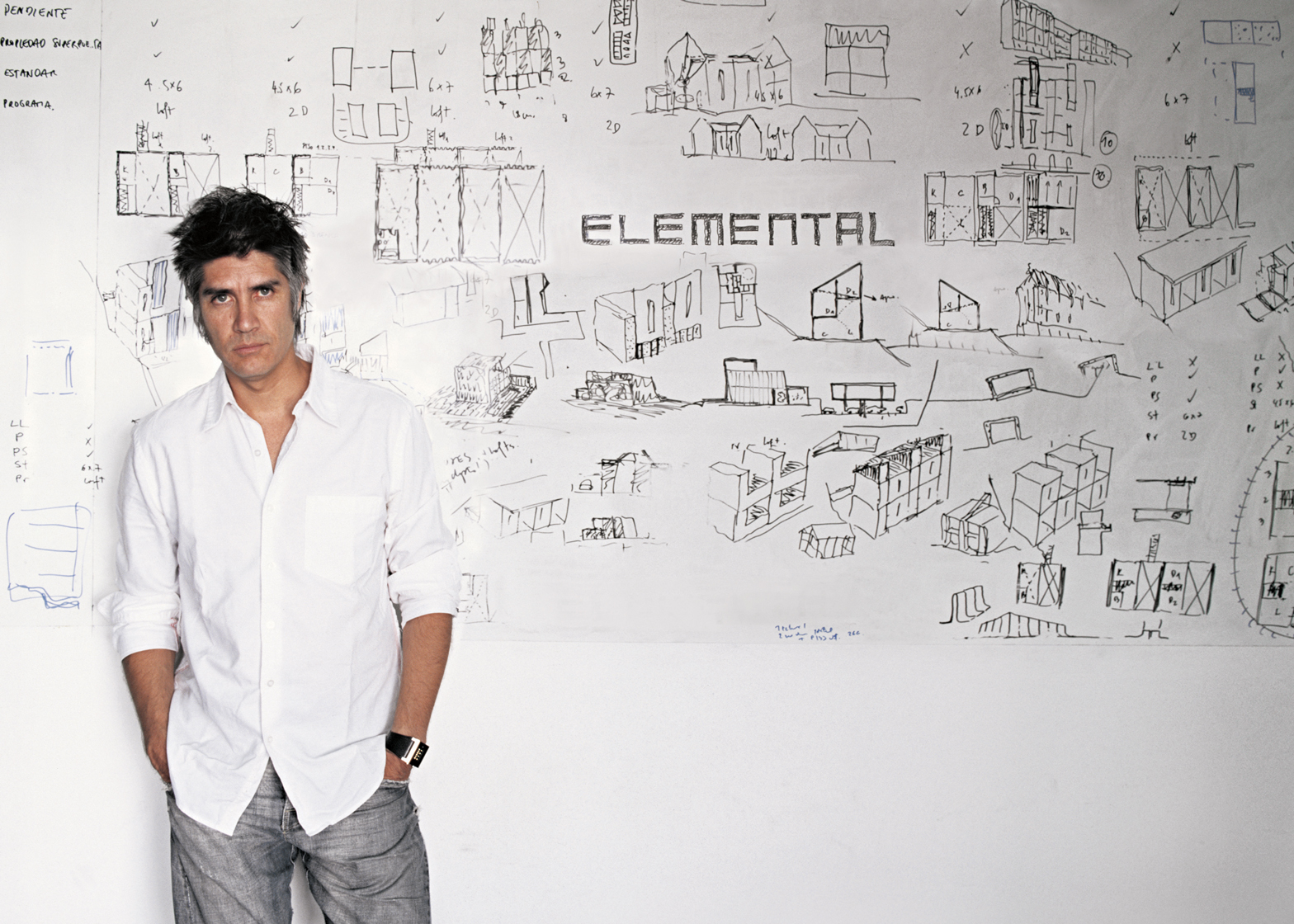Tents are a quick response to the need for emergency shelter, but "it's money that melts" says Venice Architecture Biennale 2016 director Alejandro Aravena.
Investing in less temporary disaster-relief shelters should be seen as "payment in advance" for a long-term solution to the world's housing shortages, said the Chilean architect and founder of architecture studio Elemental.
"The problem with a tent is that when you use it you throw it away, so it's money that melts," said Aravena during a lecture at the University of East London (UEL) last week. "It's a pity to waste and throw away money."
Aravena champions an "incremental" approach to housing by providing low-cost partial solutions that residents can complete themselves.
He said that developing longer-term solutions like this for the refugees and immigrants flooding into Europe could help solve the continent's existing housing shortage.
"The housing crisis in Europe, not only due to refugees and immigration that wasn't there before, will require eventually to at least be open to discuss the incremental approach to housing," he told Dezeen after the talk.
"If you [have to] provide something very, very quickly, then the chances of making a mistake are higher, so you need some help to buy time," he said. "If the temporary solution is of better quality you may buy that required time."
More sustainable and incremental models for housing need to be delivered globally to deal with the growing number of people living below the poverty line due to social or natural disasters, he added.
Aravena, who was named as next year's Biennale director in July, founded Santiago-based "Do Tank" Elemental in 2000 to develop better affordable housing solutions.
Elemental developed a model for low-cost housing based on the principle of initially providing "half a good home". This involved designing the "difficult half" of the house, while gaps left between the dwellings could be filled in by residents later.
This system was used to replace an illegal settlement in Iquique, Chile, to build a new housing development in Mexico, and was adapted into a proposal for emergency housing in the wake of Hurricane Katrina in New Orleans.
"From a financial point of view it was more expensive, but we were not throwing away money, it was paying in advance for a solution that now works as an emergency shelter but later it will work as a permanent solution," said Aravena.
His statements echo the sentiment of humanitarian aid expert Kilian Kleinschmidt, who recently told Dezeen that governments should stop thinking about refugee camps as temporary places and instead see them as future cities.
"The way to contribute to the issue is through design," said Aravena. "We [Elemental] provide professional quality, not professional charity."
"We're not particularly good people, we're not generous, we're not going for a romantic hippy approach." he said "The project started from a very pragmatic, cold-blooded reading of the facts."
Avarena's theme for the 2016 Venice Architecture Biennale is Reporting from the Front, a reference to the difficulty in producing a model for quality housing.
"The title of the biennale is Reporting from the Front and by that I mean to produce quality in the built environment is difficult. It takes a lot of effort," said Aravena at UEL. "The idea of the biennale is to try to understand what it takes."

